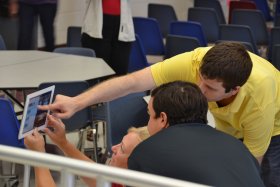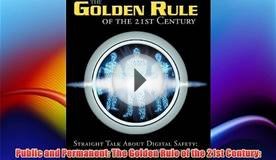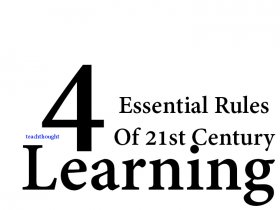Rules Of 21st

The term “21st century” has become an integral part of educational thinking and planning for the future. Educators and administrators are actively searching for ways to prepare students for the future, and the educational system has been evolving faster than ever before.
Various studies have shown us that rote memorization is not an effective learning strategy, and that teacher-centered classrooms may not be the most efficiently structured ones for student engagement.
However, despite learning about the skills that students will need to develop to become successful in the 21st century, as well as what beliefs about education may be worth hanging onto or throwing away, schools and teachers are left trying to figure out what their role needs to be in the education of their 21st century students.
Once upon a time, the role of the educator was to prepare students for the specific tasks they would be required to complete (be it a trade, craft, or profession). Communities were also much more homogenous, and so specific values and cultures needed to be transmitted and practiced to ensure the survival of those beliefs.
Nowadays, we don’t live in the same world. Society is a mix of many different beliefs and cultures. Globalization has opened up the world and allowed people to connect in new and exciting ways. We blend traditions and create unique belief systems that are not taught in any classroom, but are developed through our life experiences and passions. We transmit our values and cultures without the expectation of them being adopted by our audience – just accepted by them.
We blend traditions and create unique belief systems that are not taught in any classroom, but are developed through our life experiences and passions. We transmit our values and cultures without the expectation of them being adopted by our audience – just accepted by them.
So then, what is the role of education in the 21st century?
As always, at its core, the role of education is to prepare students to become active, successful, and contributing members of society. The essence of education’s role has not changed.
However, there has been an important change that must be considered.
Society has changed. We cannot adequately prepare students for the society that exists today or will exist tomorrow, if we continue to prepare them for the society that existed yesterday. In order to prepare students to play their role in the 21st century society we are a part of, a few things need to be considered when deciding how education will look in our schools and classrooms.
Advantage gambling, or advantage play, refers to a practice of using legal ways to gain a mathematical advantage while gambling. The term usually refers to house-banked games, but can also refer to games played against other players, such as poker. Someone who practices advantage gambling is often referred to as an advantage player, or AP.
A...


